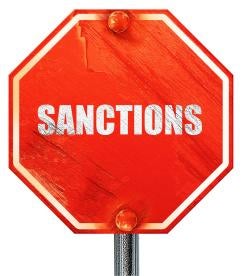Last week, the Acting U.S. Attorney for the Southern District of New York announced the settlement of a civil fraud suit against American University of Beirut (AUB) and payment of a $700,000 penalty for alleged False Claims Act (FCA) violations arising from OFAC sanctions violations. The alleged violations arose from false certifications of economic sanctions compliance made by AUB to the U.S. Agency for International Development (USAID) in connection with U.S. Government grants. According to the settlement, AUB provided USAID annual certifications that it did not provide “material support or resources” to designated entities or individuals on the Specially Designated Nationals (SDN) List of the Treasury Department’s Office of Foreign Assets Control (OFAC).
As part of the settlement, AUB admitted to a series of sanctions violations involving three separate Hizballah designated entities. AUB acknowledged that it provided journalism training workshops attended by representatives of two designated Hizballah media entities, and separately promoted a designated Hizballah construction company through its inclusion on a publicly accessible online database. AUB agreed to pay $700,000 and strengthen its compliance program to resolve the civil action.
OFAC Designations of Lebanese Companies
The AUB settlement follows recent Lebanon-based terrorism designations and sanctions enforcement actions by OFAC. For instance, last month, OFAC designated Lebanese pharmaceutical, construction, and environmental services companies tied to the Islamic Revolutionary Guard Corps-Qods Force (IRGC-QF) and Hizballah. These designations reflect the continued targeting of prominent Lebanese companies connected to Iran and Hizballah. The agency previously listed a large Lebanese telecommunications company, and one of the largest and most successful real estate businesses in Lebanon. The U.S. government will very likely continue to sanction additional sectors of the Lebanese economy through designations of Lebanese businesses connected to Iran and Hizballah.
Extraterritorial Reach of U.S. Law
In late 2016, OFAC announced the settlement of apparent sanctions violations by an Oregon-based company involving shipments to Lebanon subsequently reexported to Iran. This enforcement action represents the standard jurisdictional application and enforcement of U.S. economic sanctions. The OFAC and SDNY actions join a litany of U.S. government responses to prohibited dealings by U.S. persons with Iran or Iranian-related entities operating in or through Lebanon. These actions should remind U.S. businesses of risks associated with reexportation to Iran and dealings with designated Lebanese individuals and entities.
The compliance risks from Lebanese trade extend far beyond these typical concerns. Non-U.S. companies doing business in or through Lebanon face potential significant civil and criminal fines, even if those dealings have no connection to the United States. This extraterritorial reach is possible because of the current Foreign Terrorist Organization (FTO) designation of Hizballah, and the likely future FTO designation of the IRGC.
U.S. law prohibits the knowing provision of “material support or resources” to an FTO. Material support is broadly defined to include “any property, tangible or intangible, or service.”
The United States may assert jurisdiction over material support to Hizballah that has no connection to the United States if the “offender is [later] brought into or found in the United States.” Non-U.S. companies should consider the implications of this broad extraterritorial expansion of U.S. law. Conviction for a violation of providing material support to Hizballah may bring a prison sentence of not more than 20 years, or life if the violation results in death, and/or a monetary penalty per offense of a maximum $250,000 for individuals and $500,000 for entities.
European companies should be especially mindful of the distinction between the EU and U.S. sanctions on Hizballah. The United States, unlike the EU, does not distinguish the armed wing of Hizballah from the group’s “legitimate” charities, hospitals and schools.




 i
i

